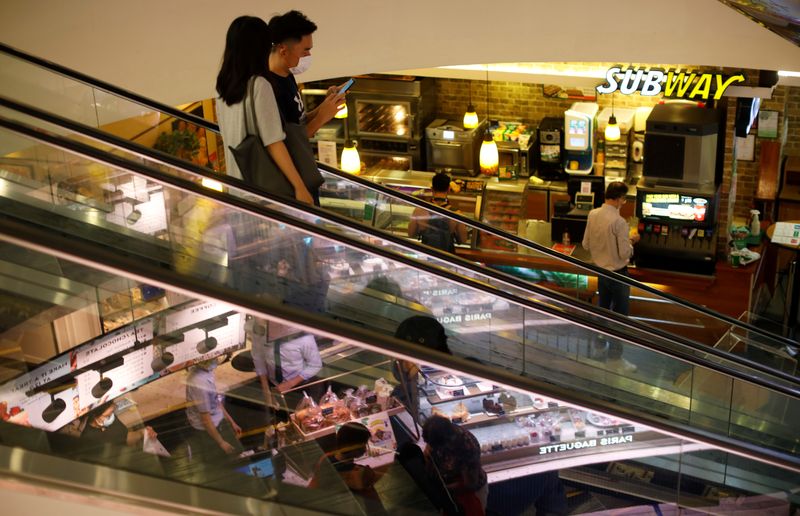By Chen Lin
SINGAPORE (Reuters) -Singapore's economy expanded more than initially estimated in the first quarter but annual GDP will likely be in the lower half of the government's forecast range, officials said on Wednesday, citing war in Ukraine and supply chain disruptions.
The Southeast Asian financial hub is often seen as a bellwether for global growth as international trade dwarfs its domestic economy.
Gross domestic product (GDP) grew 3.7% year-on-year in the first quarter, the Ministry of Trade and Industry (MTI) said, higher than the government's advance estimate of 3.4% but matching analysts' forecasts in a Reuters poll.
"The external economic environment has unfortunately deteriorated ... stringent measures implemented in China to contain its domestic COVID-19 outbreaks are likely to weigh on its economy and contribute to global supply bottlenecks," said Gabriel Lim, permanent secretary for trade and industry.
"Consequently, global supply disruptions are projected to be more severe and prolonged than earlier expected, potentially persisting throughout 2022. This in turn is likely to constrain production and dampen GDP growth in some external economies by more than we had previously projected," he added.
On a quarter-on-quarter seasonally adjusted basis, the economy expanded by 0.7%.
The MTI maintained its 2022 GDP growth forecast at 3% to 5%, but said growth is more likely to come in at the lower half of this range, due to uncertainties stemming from the Russia-Ukraine conflict and stringent COVID-19 measures in China.
"Singapore made good progress in first quarter, reopening the economy while all sectors appeared to be outperforming or normalizing. Going forward will be more challenging if China enters a recession as that would bring downside risks to Singapore economy," said MUFG analyst Jeff Ng.
The city state has removed most of its COVID-19 restrictions and eased entry requirements for travellers.
INFLATION
Singapore also maintained its inflation guidance which suggested that core inflation - the central bank's favoured price measure could peak around 4% in the third quarter, before moderating in late 2022.
Singapore's core inflation rose in April at its fastest pace in a decade, driven by higher inflation for food and utilities, official data showed on Monday.
"Current monetary policy stance remains appropriate" said Edward Robinson, deputy managing director of the Monetary Authority of Singapore at a media briefing on Wednesday.

"The cumulative effects of the (past) three monetary policy tightening moves will slow the inflation momentum," he added.
Singapore Prime Minister Lee Hsien Loong said last week that global measures taken to tackle inflation may lead to recession, but are necessary to prevent inflation from worsening.